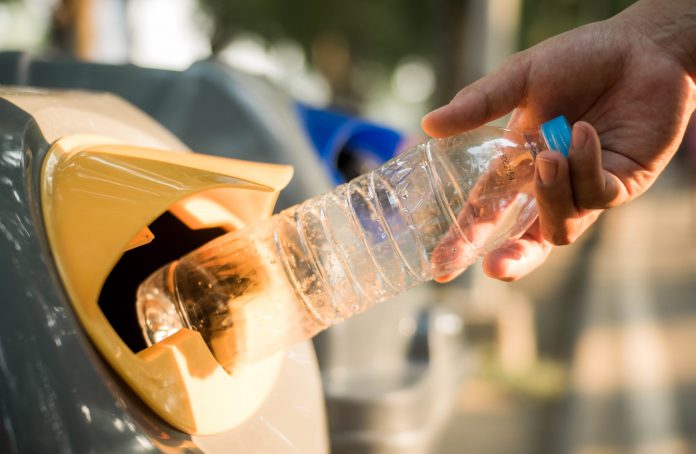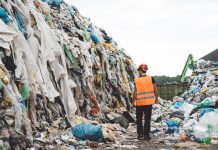Scotland’s Deposit Return Scheme is charted here by Zero Waste Scotland’s Deposit Return Programme Manager, David Barnes in this recycling focus
Scotland will soon be the first part of the UK to introduce a deposit return scheme for single-use drink containers, a move that is expected to massively increase recycling rates for bottles and cans. As Glasgow prepares to host this year’s critical COP26 climate conference, the spotlight will be on high-profile environmental legislation like this.
Of course, while Scotland is leading the UK by introducing a scheme, it’s far from being a new idea. It’s a thoroughly proven initiative and more than 45 countries and territories around the world already have similar schemes, with the best of them capturing upwards of 90% of target materials for recycling. That success is something Scotland will be seeking to emulate, delivering a world-class scheme tailored to our requirements and geography.
So, how does it work?
Consumers will be charged a 20p deposit when they buy any drink in a metal can or plastic or glass bottle and, once they return the item to a store or collection point to be recycled, they then get their money back. The scheme will make it easier for everyone to recycle their bottles and cans and will incentivise a positive behaviour change so that more people choose to do the right thing.
Deposit return is a type of extended producer responsibility (EPR) meaning that producers will be responsible for the recycling of the packaging that contains their drinks. With wider EPR reforms due at UK level, this is part of a growing shift towards putting producers in charge of the management of their environmental impacts.
While the regulations place the obligation on drinks producers to make sure that their empty containers are collected for recycling, they will be able to fulfil this collectively, by appointing a scheme administrator. This will be a privately-owned and operated body and will give drinks producers direct control and accountability for the running of the scheme. Producers have a range of transferable skills and experience from their businesses that can help make sure the deposit return scheme is effective and efficient. This model is tried and tested across much of Europe, including Scandinavia, Eastern Europe and Germany.
Scotland’s scheme is the result of intensive engagement and research with scheme operators around the world and will have a range of benefits.
Perhaps the most visible will be litter reduction across both our towns and cities and countryside and coastal areas. The 20p incentive to return your empty bottle or can will mean a big difference to the levels of litter we see in our streets and greenspaces, reducing the impacts of discarded containers on wildlife, removing glass hazards from our environment and helping everyone feel proud of their local communities.
Economic value
The scheme isn’t just good for the environment – it has economic benefits too. With increased recycling, Scotland will not only see less litter but will spend less on litter and fly-tipping too. With litter negatively influencing other areas of Scotland’s economy, such as businesses, house prices and community wellbeing, the introduction of deposit return will also lessen these knock-on effects and help Scotland prosper.
Deposit return won’t just increase the volume of recycling – it will help improve the quality of recycling. As materials will be collected separately, they can be recycled to a higher standard, retaining greater economic value. And with a guaranteed supply of high-quality glass, metal and plastic, the scheme is an opportunity to encourage the development of greater recycling and reprocessing opportunities here in Scotland.
Climate change
Scotland’s Deposit Return Scheme will be a key player in tackling carbon emissions. Recycling is one of the simplest actions we can take to tackle climate change. It requires less energy than creating new materials and so reduces our energy consumption. Scotland will also be reducing the harmful emissions caused by recyclable materials ending up in our landfills or incineration.
Responding to the current climate emergency requires taking a serious look at how we use and manage our materials. Scotland is also looking at ways to tackle the problem of single-use coffee cups and measures like these will help reinforce Scotland’s reputation as a leader in creating a circular economy, using all our resources as best we can and cutting waste from our lives. Scotland is ready to lead the way in the UK, joining others around the globe who already benefit from deposit return.
Reducing waste: Harmful plastics and other single-use packaging
Reducing waste, including harmful plastics and other single-use packaging, to enhance and protect the UK’s natural spaces and our climate are actions The Campaign to Protect Rural England (CPRE) calls for strongly. As you know, waste in the countryside harms our rivers, oceans and soils. Single-use packaging costs money to remove, destroy or recycle and contributes to climate change, which is why the CPRE calls for a comprehensive deposit return system for all drinks containers. This is a very commonly littered item and the ambition here is to increase recycling of these items to over 90%. Tom Fyans, Deputy Chief Executive of CPRE says: “To boost recycling rates for all drinks containers – cans, glass and plastic bottles, cartons and pouches – the only option is for the government to introduce an all-in system.”
www.cpre.org.uk/what-we-care-about/climate-change-and-energy/zero-waste/











